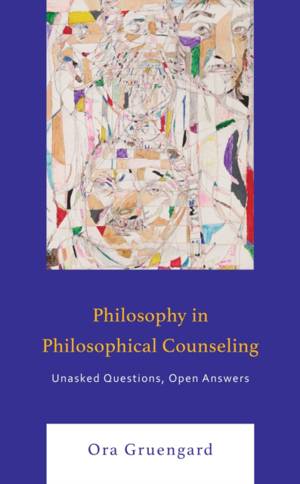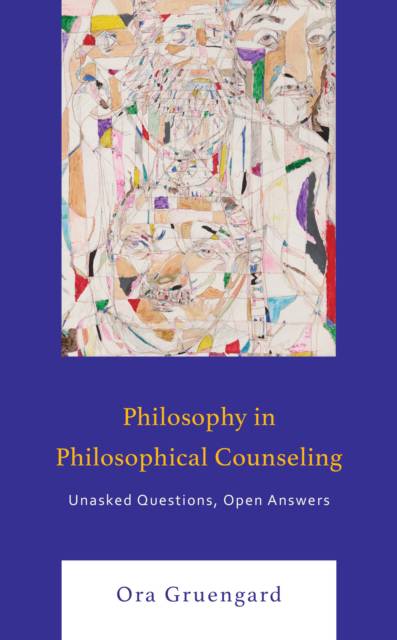
- Afhalen na 1 uur in een winkel met voorraad
- Gratis thuislevering in België vanaf € 30
- Ruim aanbod met 7 miljoen producten
- Afhalen na 1 uur in een winkel met voorraad
- Gratis thuislevering in België vanaf € 30
- Ruim aanbod met 7 miljoen producten
Zoeken
€ 186,95
+ 373 punten
Omschrijving
Philosophy in Philosophical Counseling: Unasked Questions, Open Answers offers a base for criticizing approaches to philosophical counseling that fail to be philosophical or relevant to the counselees' concerns. It analyses the impact of tacit, unexamined, philosophical assumptions and examines their influence on the search for solutions, while explaining how such assumptions may obstruct that search. Ora Gruengard argues that conversations in which the participants disagree with each other are the adequate context for calling tacit assumptions into question and exploring alternatives. Her research shows how philosophical assumptions change in informal conversations and illuminates their important role in education, religious guidance, and psychological treatments. Nevertheless, philosophical issues are best dealt with in explicit philosophical dialogues in which counselees are respected as philosophical partners who are encouraged to think critically and make their own judgments. This book addresses counselors' dilemmas by presenting examples of hypothetical counseling conversations and true sessions with real people. Gruengard also discusses what kind of philosophical knowledge and expertise is necessary for doing the job adequately.
Specificaties
Betrokkenen
- Auteur(s):
- Uitgeverij:
Inhoud
- Aantal bladzijden:
- 250
- Taal:
- Engels
- Reeks:
Eigenschappen
- Productcode (EAN):
- 9781793649096
- Verschijningsdatum:
- 25/07/2023
- Uitvoering:
- Hardcover
- Formaat:
- Genaaid
- Afmetingen:
- 152 mm x 229 mm
- Gewicht:
- 539 g

Alleen bij Standaard Boekhandel
+ 373 punten op je klantenkaart van Standaard Boekhandel
Beoordelingen
We publiceren alleen reviews die voldoen aan de voorwaarden voor reviews. Bekijk onze voorwaarden voor reviews.







